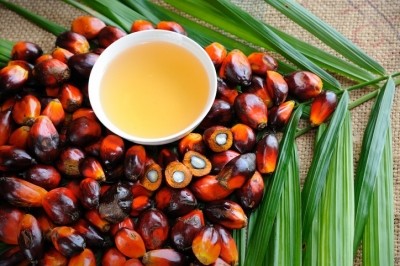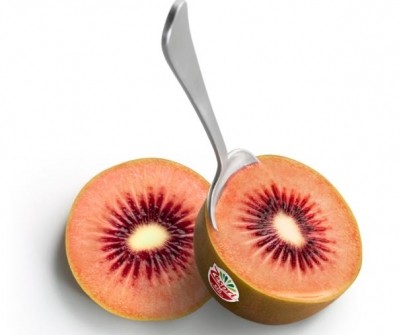Farm to consumer: Strong demand for vegetables and fruits on Duo Duo Grocery using Pinduoduo’s patent-pending cold-chain logistics system

DDG was launched in August 2020, to complement the main PDD platform. It can be accessed from the homepage of PDD, and sells products including fruits, vegetables, dairy, beverages, grains, cooking oil, snacks and household necessities.
The main PDD platform offers products from fresh produce to clothing, household items and electronics.
Preston Zhang, executive director of corporate development at Pinduoduo told FoodNavigator-Asia, the launch of DDG was inspired by a shift in consumer habits.
“During COVID-19, consumers had increasingly turned to buying groceries online due to inconveniences and concerns about shopping in crowded wet markets. This habit stuck even as lockdowns were lifted and our partners were overwhelmed by the volume of orders over that summer.
“DDG is our way of making online grocery shopping even better, faster, and more affordable for our users. A next-day grocery self-pickup service, DDG functions on a localised distribution model in which farmers and grocery merchants can sell directly to users in the region.”
According to Zhang, fruits and vegetables are its best-sellers.
“We saw a very strong demand for vegetables and fruit on DDG. This is quite an evolution in consumer behaviour.
“Sales in other categories is also strong, but as they are commoditised and less perishable, they have been more widely available online for longer in comparison with leafy greens and delicate fruit, and consumers have been more used to buying them online.”
All orders are matched to local farms, which cuts down on the time for transportation and ensures the freshness of the produce.
Users can pick up their orders within 24 hours at convenient collection points such as supermarkets, convenience stores, restaurants, medical halls, repair shops, and hairdressers, typically within a few hundred metres of their homes.
The self-pick up is cost-saving for the company since last-mile delivery costs typically account for 30% of delivery costs, and savings can be passed on to consumers.
Because DDG prioritises proximity, some items such as seasonal produce will not be available, but consumers can still order from PDD’s main platform and have them delivered in a few days.
For example, someone living in Heihe in frosty Heilongjiang may see fewer green vegetables during winter compared with the offerings for a user living in balmy Sanya in Hainan, which featured locally produced tomatoes, cucumbers, pumpkins ginger and sweet potatoes.
DDG is available in more than 300 cities in China, and users who place orders before 11pm can pick them up after 4pm the next day. There are currently 12 million farmers on the service.
Cold-chain logistics system
Behind DDG service is PDD’s cold-chain logistics system which includes technologies that plan cold-chain transportation routes based on information such as the location of the collection point and the distribution point, the availability of cold-chain logistics infrastructure, the transportation timeframe, and the number of transit points.
PDD recently filed a patent for its cold chain logistics system with the China National Intellectual Property Administration.
According to PDD, the current logistics system is designed mainly for industrial products, with routes and handling methods not suitable for the transporting of agricultural and fresh products.
For example, at some transit points, agricultural products may be taken out of a refrigerated environment to be repacked at room temperature, resulting in damage and food loss. Through cold-chain-based route planning, the whole logistics process would be designed to transport agricultural and fresh produce in a refrigerated environment, avoiding temperature-induced loss of freshness or quality of food.
This will help reduce food loss, which is estimated at 6% of China’s total food production (35 million tons).
Especially for its next day delivery service (DDG), in the long run, the reduction in food spoilage and transportation time by efficiently matching nearby farm supply with consumer demand will further reduce waste and logistics costs, which can be passed on in savings to the consumers.
PDD is also working on expanding its warehousing and sorting facilities.
Last year, PDD served 788 million users and recorded RMB 1,668 billion (US$260 billion) of Gross Merchandise Value (GMV), of which RMB270 billion (US$42 billion) comprised of agricultural products.
Zhang said the goal is to surpass RMB 1 trillion (US$155 billion) of GMV of agriculture-related products by 2025.
Exploring opportunities
PDD is also explore other opportunities in alternative proteins, food safety and precision farming.
“The food system faces a challenge with environmental and resource constraints, and we are interested in technologies that can help shore up food security. Many of these technologies can also help to mitigate the effects of climate change and other environmental risks.”
Precision farming technologies can help farmers raise their productivity to meet the growing demands of consumers for not just more produce, but also better-quality produce. “A more precise understanding of the needs of the crops and optimized management of inputs can be better both for farmers’ wallets and the environment.”
Consumers are also demanding products that can be better for the environment while not compromising on taste, which is something that alternative protein products can address, according to Zhang. “We will also work with the research community to further scientific knowledge.”
“We are also interested in food safety because food supply chains are becoming more complex, and we want to be able to provide our consumers with trusted, quality products.”





















